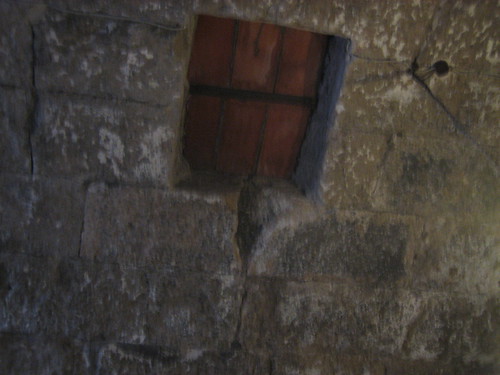Our Teen Catechism group just met for the last time this schoolyear. We've been reading and discussing Jesus of Nazareth, by Pope Benedict XVI, and after over a year of work, finished the book! I spent another afternoon in the kitchen in honor of this momentous occasion, and built this sweetly unhealthy but singularly appropriate confection.
The lappets and cross are white chocolate, the rest cake and buttercream. Not having a patented papal-tiara baking pan, I gave it a slightly unconventional shape, but you get the idea:)
